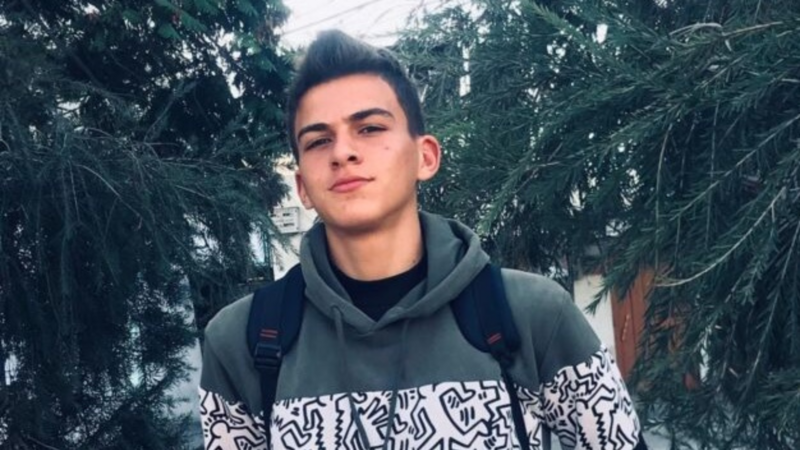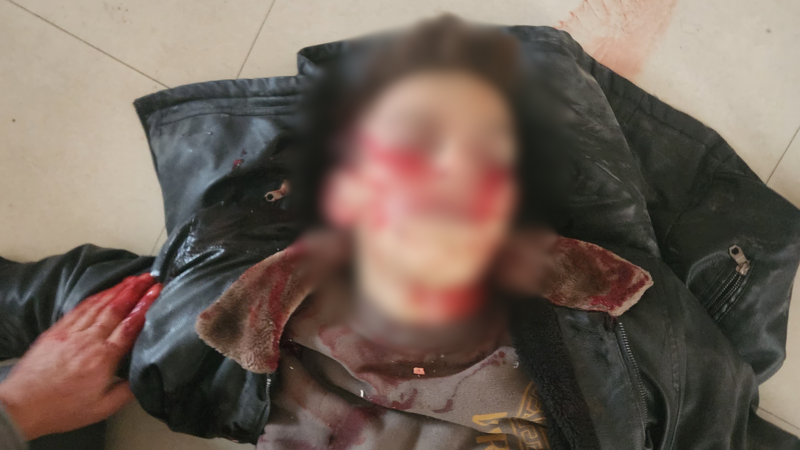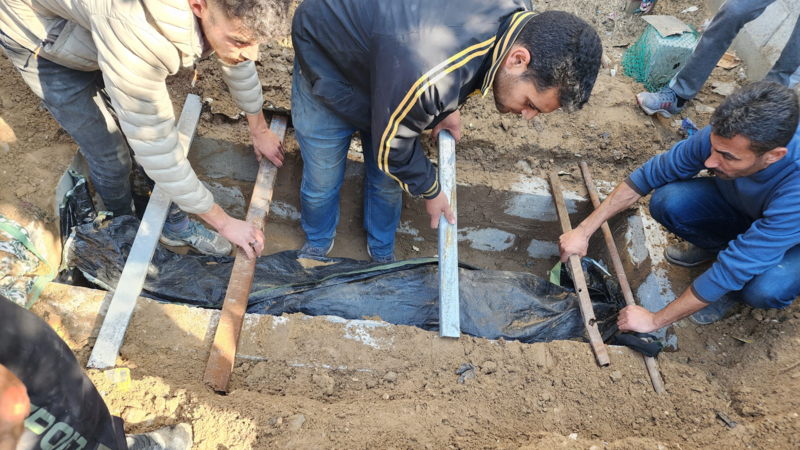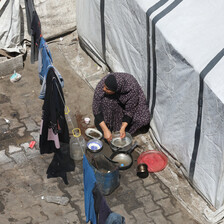The Electronic Intifada 22 August 2024

Abdul Karim al-Ramlawi turned 18 years old in May 2024. He hoped to attend college and study mechatronics.
Abdul Karim Omar al-Ramlawi had just turned 18 years old in May.
He always dressed well, in jeans and jackets, and he dreamed of going to university to study mechatronics.
He loved riding motorcycles and playing and watching soccer. He supported Real Madrid and considered his favorite player Luka Modrić to be a legend of the game and would frequently praise him. He was also a pet lover, especially cats.
At school, he told jokes to his classmates and studied during breaks. After school, he helped his father at the nylon factory and would run errands for his mother.
“He loved befriending and helping all,” said Hassan al-Ramlawi, Abdul Karim’s cousin. “He was so ambitious and passionate. Everybody cherished him.”
But when Israel launched its war on Gaza, Abdul Karim’s life and dreams were spoiled.
Abdul Karim had just started his final year of high school. His family had even dedicated a room in their six-story house, in Gaza City’s al-Tuffah neighborhood, for Abdul Karim to study for his exams. One of his goals was to be among the top-scoring high school students in Palestine.
Yet the 15-member al-Ramlawi family was forcibly displaced by Israeli attacks for the first time in October 2023.
Israeli sniper overkills Abdul Karim
In February, the al-Ramlawi family lived through 12 days of relentless attacks by Israeli occupation forces in their rental home in west Gaza City.
“Our days were filled with panic and death,” said Khalil al-Ramlawi, Abdul Karim’s brother. “Drones buzzed over our heads, Israeli tanks relentlessly bombed around us, and F-16 warplanes randomly leveled houses.”
The family was also nearly starving. “We were fasting all day and barely could afford half a loaf of bread per day,” Khalil, age 36, said.
They boiled contaminated water to drink and ate their soggy bread.
Amid these 12 days of Israeli attacks, the morning of 8 February was especially bleak and freezing.
Khalil recalls that him and Abdul Karim had woken up early for fajr, or dawn, prayers in their home.
Afterward, around 9 am, Khalil said, Abdul Karim approached a window.
“He wanted to look from the window to see if the Israeli forces withdrew or not,” said Khalil. “Once he approached the window, a sniper on a tank shot him. Two bullets pierced his chest and head. As he was taking his final breaths, he raised his finger and pointed to me to tell me not to come over.”

Abdul Karim was shot dead by an Israeli sniper on 8 February. When the family tried to retrieve his body, snipers continued to shoot.
“I was inside the same room but couldn’t do anything for him.”
Khalil took cover from the sniper’s bullets, but the sniper kept firing.
“The sniper was shooting him for fun,” he said. “There was like a blood fountain around him.”
Hours passed, and each time the family tried to go to Abdul Karim, Israeli snipers would fire their weapons.
“As my younger brother Ahmed and I got close to pull him in, a bomb blew up the room and a bullet hit Abdul Karim’s chest again,” he said.
“Minutes later, a quadcopter came to make sure [Abdul Karim] was killed. Even though he was clearly [dead], the quadcopter shot his corpse nonstop.”
Eventually, Abdul Karim’s father risked his life to retrieve Abdul Karim’s body. He crawled into the room and pulled him into the sitting room.
“We found 20 holes in [Abdul Karim’s] chest and head,” Khalil said.
The rooms of the house had basically collapsed inward from the bombs.
“We had to stay on the staircase for four consecutive days.”
“I saw life through him”
“He stayed with us as a corpse,” Khalil said of his brother. “I was living and sleeping next to a corpse. Who on earth can ever endure this?”
Khalil slept alongside Abdul Karim’s corpse for two days. The family could still feel Abdul Karim’s presence despite his being dead.
Israel continued to bomb the area and their house.
“We were living through pure terror,” Khalil said.
After two days, they were able to creep down the stairs and into the backyard. They dug a grave for Abdul Karim and buried him there.
In mid-February, they exhumed Abdul Karim’s corpse for burial in al-Tuffah graveyard.

Abdul Karim’s body was exhumed for his final burial in al-Tuffah graveyard in Gaza City.
Abdul Karim’s mother Mona cried for over a month following his killing.
“He was our legs and arms. He was the biggest treasure I had in this life. I saw life through him,” she said. “These days, we should be waiting for his high school [exam] results to celebrate, but he got the highest result, to be in heaven.”
Abubaker Abed is a journalist and translator from Deir al-Balah refugee camp in Gaza.
All photos are courtesy of the family.




